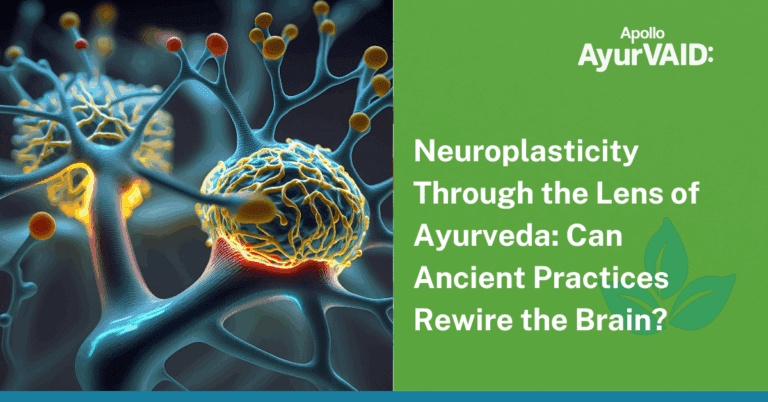Our body is composed of 50-70% water, with blood containing 83% water, lean muscles 75% water, bones 22% water, and the brain 74% water. Water is required by all organs to hydrate cells and tissues, regulate body temperature, and aid in breathing, sweating, and absorption of minerals and nutrients. Water is used up during various body processes like breathing, sweating, and absorption of nutrients, making rehydrating essential for the body’s normal functioning. In short, water has various physiological roles. A human being can survive without food but cannot survive without water.
Water is a fundamental element of the Panchamahabhuta, crucial for health and developmental issues, and consuming healthy water is essential. Ayurvedic literature provides guidelines for proper food intake to maintain longevity and strength. Water should not be consumed in small or excessive amounts, as it can be harmful. The Ayurveda texts also mention therapeutic water drinks for treating specific ailments. Guidelines for drinking water habits include sources, quality, seasonal variation, types, Prakriti, indications, contraindications, time for digestion, movement, and contraindications of hot and cold water described in detail. Excessive water consumption can negatively impact health.

What are the Rules of Drinking Water in Ayurveda?
Ayurveda categorizes water based on its processing methods and its role in human health. Cold water is used for various ailments like alcohol abuse, vomitting, fatigue, dizziness, thirst and Pitta disorders. Hot water is used for fevers, hiccups, dyspnoea, coughs, obesity, and disorders of the throat. Boiled cooled water is anabhishandi and laghu, tthat is easy to digest and beneficial in pitta dosha-associated conditions but can vitiate tridoshas if kept overnight. Boiled cooled water is also recommended for non-obstructing channels of circulation and is easily digestible.
Matrayajalapana (Drinking Water in Appropriate Quantity)
Moderation is paramount in the Ayurvedic approach to water intake. Consuming water following one’s thirst, known as matrayajalapana, ensures hydration without disturbing the delicate balance of doshas. In today’s hectic lifestyle, Vata imbalance due to irregular routines and excessive movement can lead to neglect of thirst cues, resulting in either dehydration or atijalapana (excessive water consumption). Striking a harmonious balance, as prescribed by Ayurveda, helps prevent imbalances and supports overall well-being.

Atijalapana (Avoiding Drinking Large Quantity of Water)
Ayurveda cautions against the indiscriminate consumption of large volumes of water, which can disrupt the equilibrium of doshas. Atijalapana, or excessive water intake, may aggravate conditions such as Kapha and Pitta, especially in patients suffering from fever, where the excessive intake of cold water can disturb Agni, the digestive fire. This imbalance may manifest as symptoms of indigestion, acidity, or even exacerbation of inflammatory conditions. With moderate intake, individuals can safeguard against such imbalances and maintain optimal health.
Ushnajalapana (Preference for Warm Water)
Ayurveda emphasises Ushnajalapana, or the consumption of warm water, for its digestive benefits. In today’s modern lifestyle, characterized by irregular eating habits and stress-induced digestive issues, warm water serves as a potent ally in supporting Agni and promoting efficient digestion. The warmth of the water pacifies vata and kapha doshas, thereby alleviating symptoms of bloating, sluggish digestion, and discomfort. Incorporating this practice into daily routines can nurture digestive health with a sense of balance amidst the chaos of contemporary living. Aushadsiddha paniya is a type of medicated water used for treating various diseases. It is prepared by boiling one part of the raw drug with sixty-four times the water, which is then used for various purposes such as drinking, as anupan, and to make peya and vilepi, which are thin rice gruel.
Jalapana Kala (Optimal Timing of Water Intake)
The timing of water intake, as mentioned by Ayurveda, plays a pivotal role in supporting digestive health and overall vitality. Jalapana kala, or the appropriate timing of water consumption, ensures that agni remains robust and digestion remains efficient. In today’s society, characterized by erratic eating patterns and lifestyle habits, adhering to the Ayurvedic guidelines for water intake can mitigate digestive disturbances and promote optimal nutrient absorption. Drinking water before meals weakens digestion and causes emaciation. Consuming water at the end of meals leads to obesity and Kapha accumulation. It’s better to drink water in the middle of meals to maintain tissue normalcy and facilitate easy digestion, as it helps maintain the body’s health.
Sadvritta (Mindful Living)
In today’s fast-paced world, characterized by distractions and constant stimulation, practicing sadvritta allows individuals to reconnect with the innate wisdom of their bodies and honor the sacredness of nourishment. Sipping water slowly and intentionally, rather than mindlessly gulping it down, promotes digestion, enhances hydration, and fosters a deep sense of well-being. Mindfulness in water consumption, is a part of Sadvritta, with an awareness and reverence for the act of drinking water, individuals can harmonize mind, body, and spirit.
Water is crucial for life and health maintenance, as explained in Ayurveda. This wisdom can be applied to the present era by implementing it as a Public Health Initiative at the community level, as traditional wisdom can be applied to prevent and alleviate diseases.
References:
- Londhe, D., Chandra, C. A., Namburi, U. R. S., Kumar, S., Chinchalkar, S., & Chuliveri, S. K. (2020). Water for Health: An overview of principles & practices of Water consumption in Ayurveda. Annals of Ayurvedic Medicine, 9(3), 189-189.
- Fadanavis, M. V., Sawarkar, G. R., & Sawarkar, P. (2021). An observational study for principles & practices of water consumption in Ayurveda with reference to the Prakriti-A Protocol. NVEO-NATURAL VOLATILES & ESSENTIAL OILS Journal| NVEO, 1111-1120.






